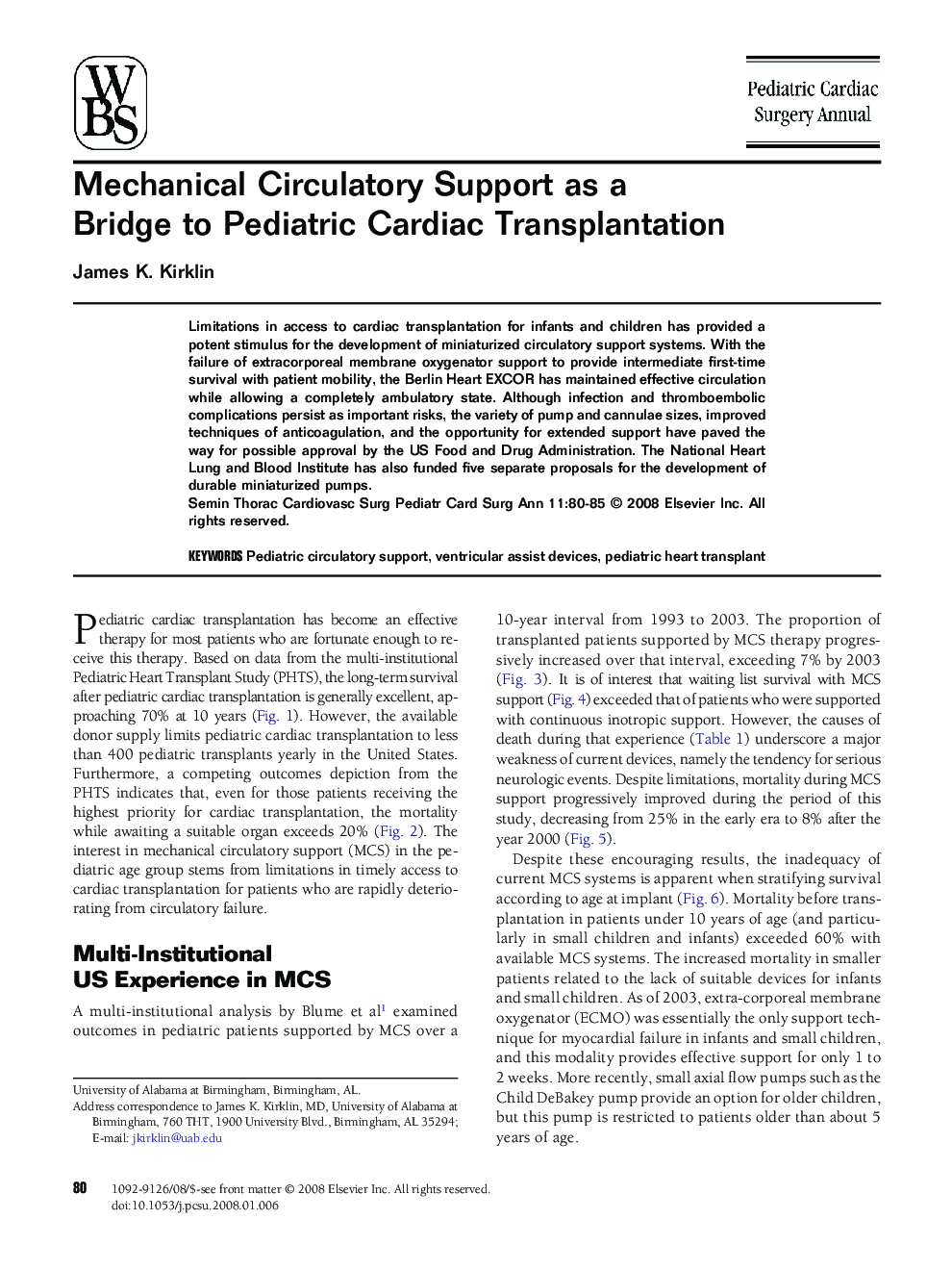| Article ID | Journal | Published Year | Pages | File Type |
|---|---|---|---|---|
| 3025921 | Seminars in Thoracic and Cardiovascular Surgery: Pediatric Cardiac Surgery Annual | 2008 | 6 Pages |
Abstract
Limitations in access to cardiac transplantation for infants and children has provided a potent stimulus for the development of miniaturized circulatory support systems. With the failure of extracorporeal membrane oxygenator support to provide intermediate first-time survival with patient mobility, the Berlin Heart EXCOR has maintained effective circulation while allowing a completely ambulatory state. Although infection and thromboembolic complications persist as important risks, the variety of pump and cannulae sizes, improved techniques of anticoagulation, and the opportunity for extended support have paved the way for possible approval by the US Food and Drug Administration. The National Heart Lung and Blood Institute has also funded five separate proposals for the development of durable miniaturized pumps.
Related Topics
Health Sciences
Medicine and Dentistry
Cardiology and Cardiovascular Medicine
Authors
James K. Kirklin,
